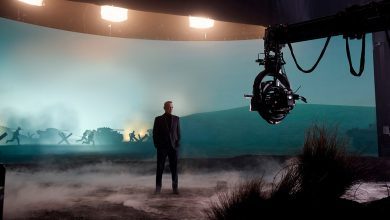Issa Rae, Awkwafina and Director
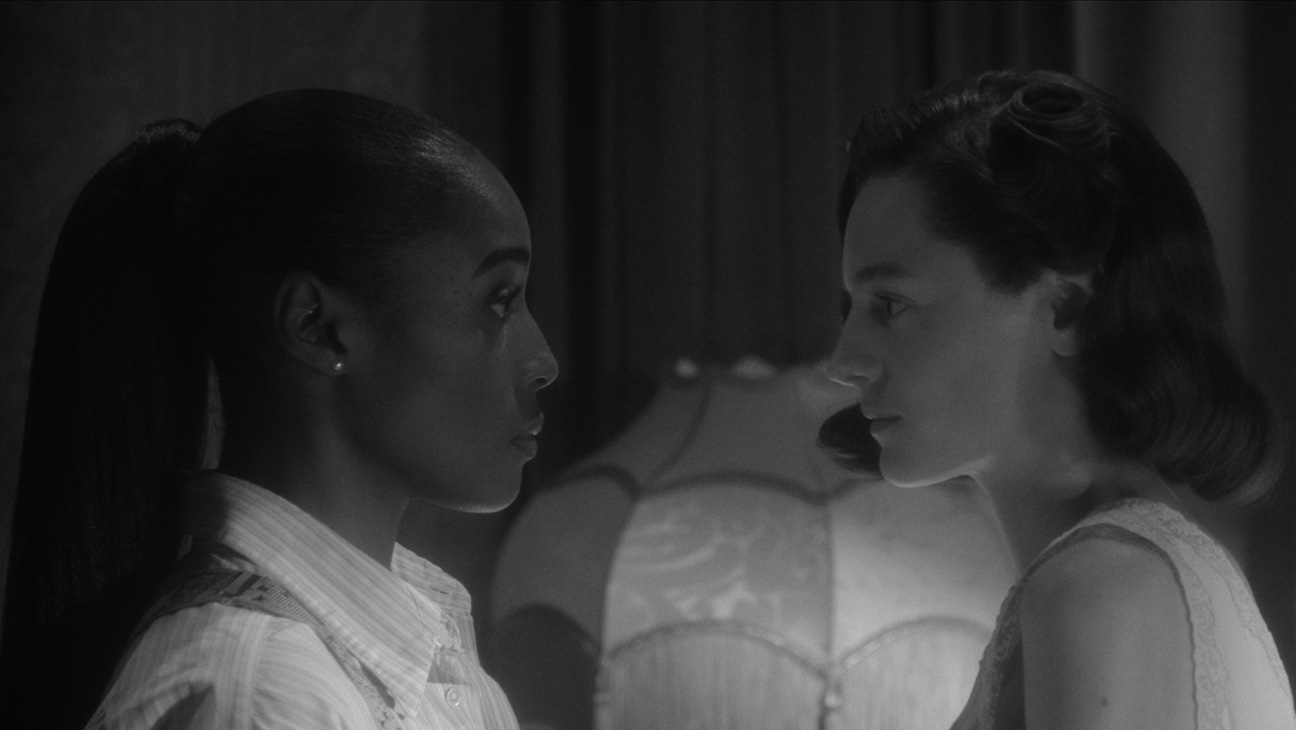
[This story contains spoilers from Black Mirror season seven’s “Hotel Reverie.”]
In Black Mirror’s latest season, executive producers Charlie Brooker and Jessica Rhoades deliver “Hotel Reverie,” a trip not only into Hollywood’s past and potential future, but also into the Netflix series’ own vault.
اRelated Posts:
Starring Issa Rae, Emma Corrin, Awkwafina and Harriet Walter, the feature-length episode is set in a time where an actor’s consciousness can be tapped to render their likeness within an AI film. That’s where actress Brandy Friday (Rae) finds herself, alongside an AI co-star that is a rendering of the late starlet Dorothy Chambers (Corrin) who portrays Brandy’s love interest, the stunning damsel Clara.
The presence of AI in the season seven feature is reminiscent of last season’s “Joan is Awful,” but “Hotel Reverie” more intentionally calls upon season three’s beloved “San Junipero,” says episode director Haolu Wang. “We discussed it quite a bit,” she told The Hollywood Reporter about how much the Emmy-winning season three story inspired this new love story. “There’s a reference in there at the very end of it, for people who noticed the package.”
In the new digitally-set queer love story, Rae’s character Brandy is desperately seeking a role that will break her free from Hollywood’s (stereo)type-casting. So when her manager reveals that the studio behind 1940s big screen classic Hotel Reverie is casting for an updated take, Brandy disregards that the leading role is a man, pitching herself for a modern take on romantic hero Dr. Alex Palmer.
Brandy sees the genderbent role as an opportunity to buck industry gatekeepers, while Hotel Reverie’s Keyworth Studios — headed up by Walter’s Judith Keyworth — is looking for a way to save itself amid dwindling finances and declining catalog interest. For Awkwafina’s Kimmy, the head of Redream, Hotel Reverie offers a way for her AI company to make its mark through one of Hollywood’s oldest and most prestigious moviemakers.
But after Brandy’s consciousness is transported into the film’s AI world, something goes awry, resulting in the Redream crew, who is settled in their “control room” with Brandy’s body, losing contact with their star. Stranded with a co-star (portrayed by a closeted actress) who is increasingly becoming self-aware, Brandy continues to break the Hollywood and AI mold when she and Clara go on a whirlwind romantic journey that is hard to shake once she and Clara are eventually pulled back online into the AI film.
The bittersweet “Hotel Reverie” doubles as an exploration of the dangers of using AI on humans and the potential to find ourselves when we step outside the system and lose control. “Ultimately, what moves people is not what is controllable. It’s not what they have planned for,” says Wang. “I hope that people will take away from the story and that what moves them the most is the bit of the story that the control room has never seen.”
Ahead of Black Mirror’s season seven debut, The Hollywood Reporter spoke to Wang, Rae and Awkwafina about their work on “Hotel Reverie,” including the impact of AI on stories and performers, those timely meta references, and filming a queer love story through the lens of a classic black-and-white Hollywood film.
***
The Pop Culture References of “Hotel Reverie” Help Deliver Yet Another Uncannily Meta ‘Black Mirror’
The Netflix series is known for its timely, near-prophetic references. With “Hotel Reverie” — which gives a nod to THR — the show namedrops A-listers like Chris Hemsworth, Timothee Chalamet, Donald Glover and “the Ryans” (Gosling and Reynolds) to help land its take on the Hollywood machine (human and AI). In the process, a story that sees characters challenge the limits of Hollywood’s imagination becomes an exercise in just how meta Black Mirror can get.
HAOLU WANG [The references] were all the work of the wonderful Jessica Rhoades and Charlie Brooker [who wrote the episode]. But it was my idea initially to cut from the Ryan line to the actual Ryan [Gosling] poster. I thought that’d be quite funny, and it’s very relevant. That’s what Black Mirror does the best. It’s very current. With Ryan Gosling, we went back and forth a few times to see if we could get it, and in the end, we thought it was worth the Black Mirror humor. Luckily, I think Jessica did magic there, as usual, so we got the clearance for it. Because it is meta, the more contemporary the better. It’s also funny that Emma was recently just in Deadpool with Ryan Reynolds and Issa’s in Barbie with Ryan Gosling.
ISSA RAE That’s the brilliance of Charlie Brooker. Brandy was a character that I could easily relate to and get into. I felt her, I saw her,and I wanted the best for her. I understood — even though this is a crazy experiment to partake in — why she did it. Because it was also rooted in wanting some agency over her own choices and wanting to take risks.
AWKWAFINA It was fun to play this kind of neurotic director — like, everything is falling apart, and you’re screaming and snapping a pen. I think it was my little homage to everyone that’s done that. (Laughs) It is fun to even just say “action” as an actor, because you never get that power. And I loved working with Haolu. I think she’s truly a very brilliant storyteller and her attention to detail and knowledge of these characters was so fully realized.
WANG It was so exciting to put Issa Rae into this role. Awkwafina’s delivery with the Ryans was also hilarious. It was great to work with her. She’s amazing and it was such a great comedic duo with her and Harriet Walter. Their characters represent the future and the past, just like Issa’s and Emma’s.
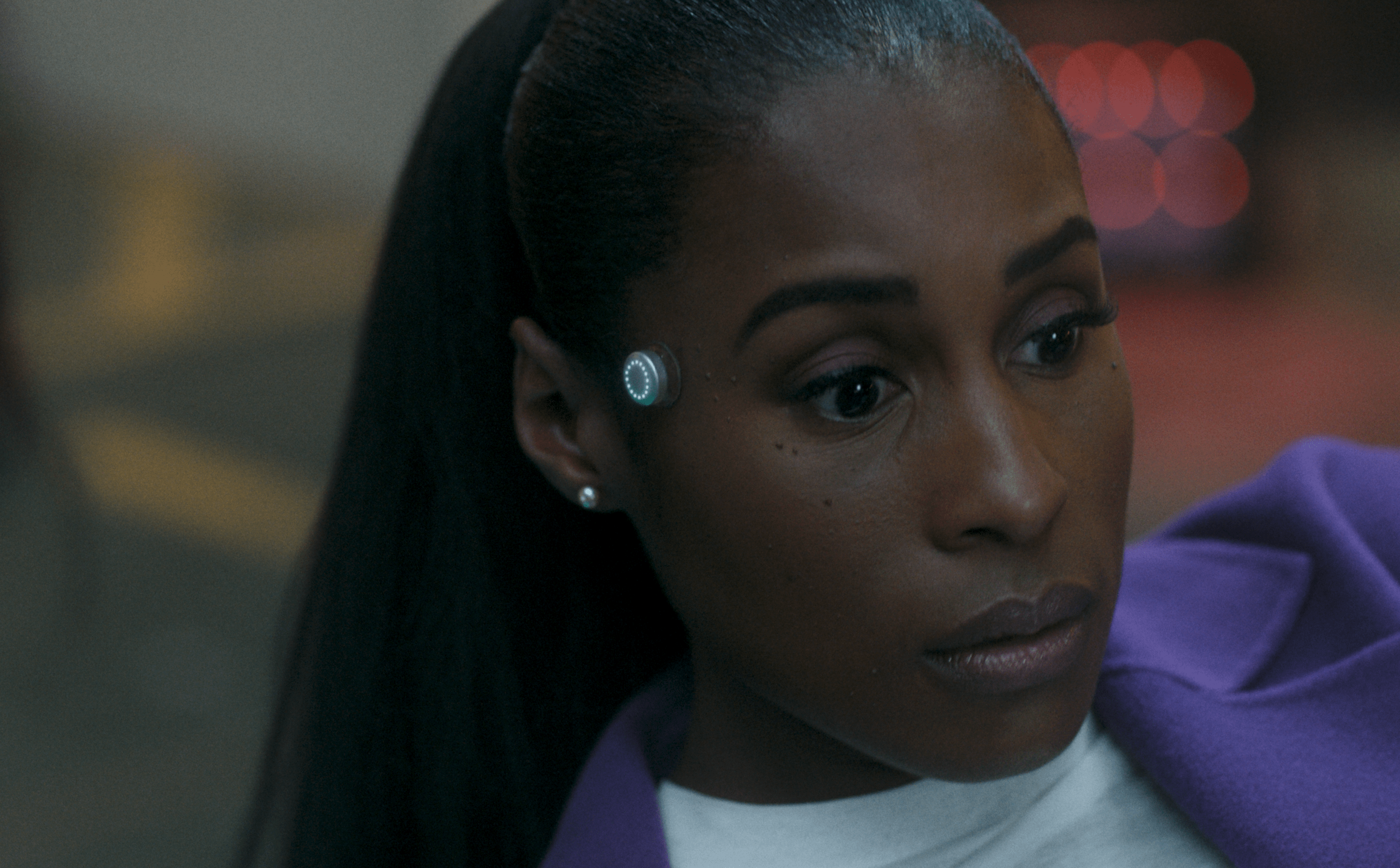
“Hotel Reverie” Calls Back to “San Junipero,” This Time With a Queer Love Story That Straddles a Modern Day AI Film Set and a 1940s Noir Film
Period romances set in digital worlds like “San Junipero” and “Hotel Reverie” offer chances for their leading queer women to find both themselves and love by stepping outside of the confines of our reality. Both also deliver romantically bittersweet endings, but at the heart of “Hotel Reverie” is a narrative about real and artificial systems that have the power to dictate who you can be or what you can do — and what can happen when those systems lose that control.
WANG For me, it’s always central that the magic, the romance connection, feels genuine, but it flips reality on itself. The story is fundamentally about two people finding a genuine connection and themselves in an entirely artificial setting. That contrast is really interesting, and it’s very moving because it talks about someone from now and someone from the past, both actors trapped in different ways who otherwise would have never met. They find each other in a similar boat and find themselves being able to be their true selves for the first time with each other, but in a limited place. Then they enjoy themselves as if they’re on the moon. That’s what Charlie and I talked about a lot. It’s as if there are two people on the moon and you have this NASA mission and everyone is trying to control them, but they are lost in space, going on this mission of romance.
What’s ironic [about the AI movie crew], and what’s really clever about the “control room” is that they want to control everything, but the whole episode is about how they gradually lose control, and the bit where [Brandy and Clara] actually genuinely connect — the emotional high in the middle — they never see. They have no access to that. That’s what the audience I hope will be left with, that feeling of them alone in that world when the AI technology is not working and it’s broken [and time is moving at high speed]. What Clara discovers about herself in there is existential. The piano that she plays shows you a glimpse of her soul. I think that’s when the connection between Brandy and Clara becomes real because Brandy starts to see her as someone who has a soul, and she starts to feel vulnerable with her.
That becomes something that is very human and I think that says everything about AI. For me, the episode is about how AI cannot create that, and what moves us is always something we haven’t planned for, we haven’t experienced. The episode, the story, is kind of about self-discovery, and if you want to discover something, you can’t control it.
RAE The bittersweet nature of this is that this love that she felt for this person — who’s not a person and who’s only been able to be this whole being because of this accident — is just left behind. Those memories they shared can’t be recreated in the same way, so is it really real? Who will understand this? There’s so much sadness of, “I experienced this true love in this relationship that I can’t explain to anyone.” It also feels kind of foolish, so should I feel ashamed of having those feelings even though I have this connection at the end? There’s no physical element and I can’t talk about this with anyone. Can I call my friend and be like, “Oh yeah, I’m just talking to my little AI boo from the ’40s.” (Laughs)
WANG In the fictional story, we want to feel as if they could talk forever, but then Clara is made up, obviously, by Kimmy. So it is sad, but with a little bit of hope, of longing that continues to remind people that this is what matters. The connection is what matters. That’s what stays with you that will never go away, even though you’ll never quite have your person ever again. The ending is tonally bittersweet, in a way that is not totally tragic. It’s about what kind of feeling you want to leave the audience with and, for this, it’s longing.
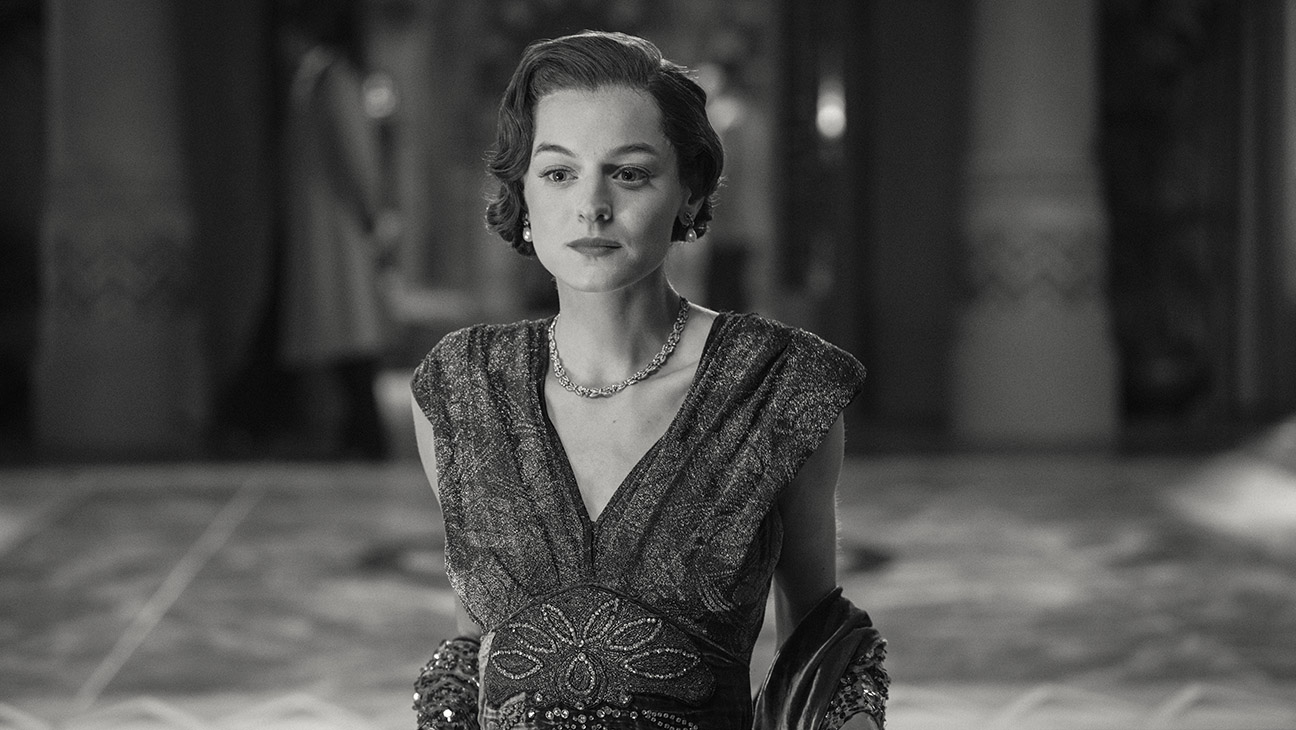
A Story of Love and Longing With an Appreciation for (But Willingness to Defy) Historical Limitations of Filmmaking
“Hotel Reverie” is a fictional black and white film made in the modern-day world. That meant the creative team had to consider how to tell it in a way that felt both in the ‘40s and today, with a cast of characters — a white woman studio head, an Asian woman director, and a Black queer leading lady who stars opposite her white queer (and AI) co-star — that wouldn’t have been able to lead, produce or openly star in the film when it first released. Wang and her team accounted for that in numerous ways, from the episode’s lighting to costuming and cinematography choices.
WANG Our DP, Philipp Haberlandt, is amazing, and we did lots of camera tests. We tested different lenses against different skin tones. One would be similar to Emma’s skin tone, and one would be similar to Issa’s skin tone. We have the framework of the story, and this is an AI-generated film where they want to make Issa’s character look glamorous as a leading character. It’s going to be broadcast today, so we need to light her as glamorous as they lit Gregory Peck back then. That was the rationale.
We went with it, and then we did lots of costume tests for different fabrics, and we made sure that she always felt like an essential character. The way it’s lit will have a nice bounce but in a ‘40s way. My DP would say it better, but we used soft velvet, or we tried different silk on the lenses. We used the lenses [they used] to shoot the Godfather, vintage lenses that would make the blemishes go away. Back then, the shots and close-ups looked more glamorous than today, so we followed all those rules to make them look really beautiful. It’s essential that they both feel that they’re in a glamorous Hotel Reverie film in the 40s. The film itself is a romance noir film, if you look at the film within the film. We looked at Casablanca, Rebecca, Notorious, and some of their noir elements and their lighting.
One key scene is the stocking scene. In the original version, if it were a man and a woman — and knowing that Dorothy is queer — she would have reacted very differently to the leading man. It’s just very superficial. It was really funny because we had to film one after another on set, with the original Dr. Palmer. We would slip in the male actor after Issa and the dynamics, when it is two women, naturally it is different. The language is the same, so we would still do the two shots, the close-ups, but the way [Brandy and Clara] are both dancing around each other’s desires and longings and discovering how they respond to each other’s bodies and touches, the sensitive moments, we give them time so we can observe and naturally feel how the tension builds so that feels genuine. It’s a classical film, but something else is happening here. It’s outside of the box and outside of the framework, but it’s subtle, and you can feel that it’s organic. They’re both discovering it at the same time. That includes the bit where Clara touches [Brandy’s] hand at the beginning. It feels like a big moment. Everything is controlled and then suddenly something real happens. That opens a can of worms and that makes her tune into something different. Brandy discovers something about herself.
Clara has the chance to experience her co-star being a woman. So it was important to follow the grammar of the ‘40s while we’re still within the story of the film, and yet feel as if they’re stealing glances at each other. They’re doing something a bit intimate and rebellious within a very tight framework. That’s romantic because they’re trying to break rules in a very confined setting. Then when the world shatters, we freed up the language of it. Even the sound — the audio and camera work — feels like it’s modern. Somehow they feel present. We started using steadicam. We use handheld within a set that is a ‘40s film. I thought that was provocative when you have established such a strict rule in this space, and suddenly you have freedom for them to feel real and dance around people who are frozen. That’s what falling in love feels like. It feels like the whole world has stopped moving, and it’s just two of you together.
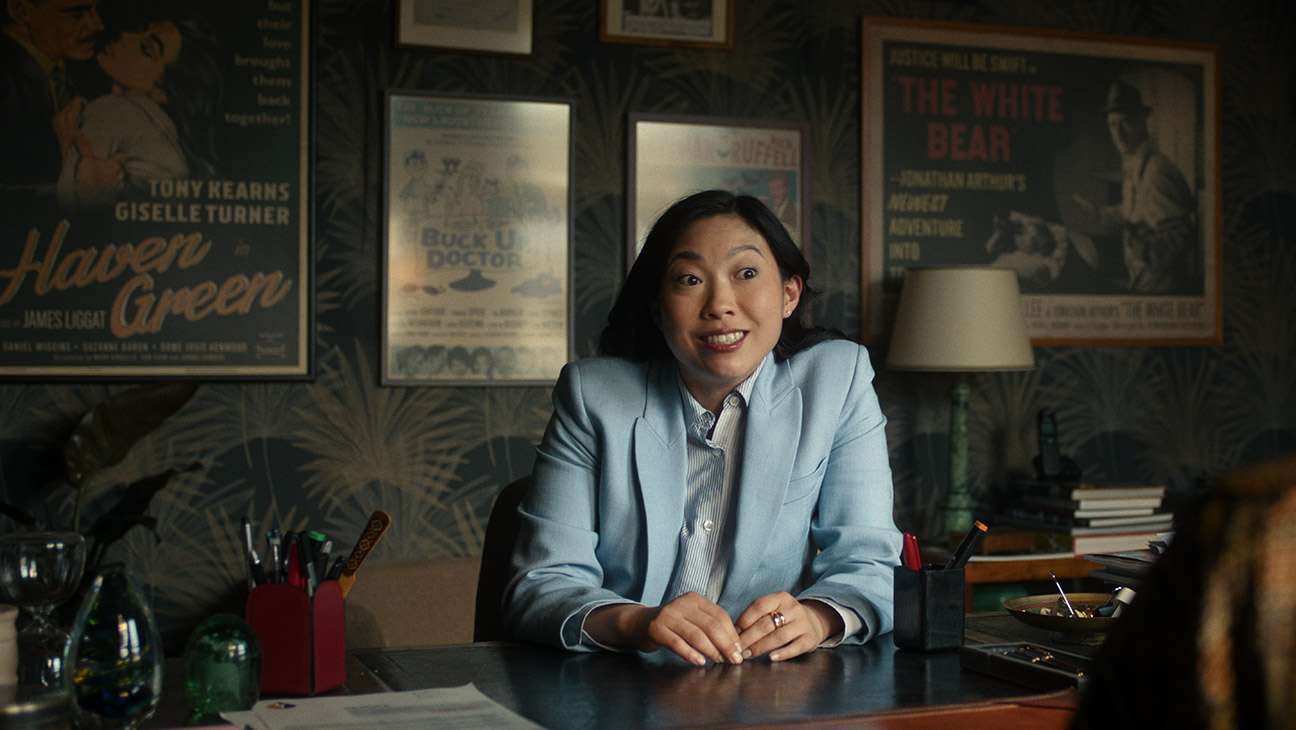
There’s a Love Story at Its Center, But the Episode Doubles as a Look at the Impact of Using AI on People — Similar to “Joan Is Awful”
While “Joan is Awful” explores what Wang calls the “nightmare dimensions” of AI, “Hotel Reverie” offers a look at what happens when people with good intent consent to its use, even if it poses very real dangers. Picking up where “Joan is Awful” left off, this episode raises questions about the real costs of using something Wang says is “not racist or sexist” inherently, but can shape and be shaped by whoever uses it.
AWKWAFINA In “Joan is Awful,” she exists kind of involuntarily against this massive force and has no control over what’s going on, whereas, with “Hotel Reverie,” we’re very conscious of it. We don’t want to ruin anybody or kill anybody.
WANG In “Joan is Awful,” we unravel and see the nightmare dimensions of it. This [episode] makes it feel as if it’s already there and this could happen. So now, with Hollywood — all the reboots and all the franchises — you wonder if some people would think with the studio archives and all the other old films, if we cast somebody, whether that will happen. But I hope that by the tragedy and emotional cost of the episode, people could feel that this is not just some technology you can toy with.
RAE In addition to being trapped, it is a matter of life and death for [Brandy] and them putting her in this film without iterating those consequences to her is crazy. It also speaks to how disposable the industry thinks actors are in so many ways… It comes down to who wields it and why. It will never replace what people bring to the table, which is what the core of the demand is. We want to relate to what’s being portrayed on screen. You can’t fake that.
WANG What the episode discusses, broadly, around AI, is what actors are going through right now, and if this could actually happen to an actor that tried to reenact a role. What’s the psychological, and emotional implication for somebody who has just been used for two hours? The Brandy character in the end wants to keep a certain connection or longing, but that’s entirely limited. The more it feels real that Clara is there, the more we also know that it’s impossible. It gives people that profound feeling of, what if we use that technology on real people, on actors? What would the implication of that be?
AWKWAFINA The technology is very new, so I think that anything new is scary. You don’t know its range of possibilities. You don’t know if it’s just going to be a simple Google-type of thing, or if it’s going to be something that overpowers everything. My stance as that we’re seeing it integrate into society: how do you make it work for us? How is this going to ease our lives and not create obstacles? You don’t want technology to dictate you, your job, or anything, but you want to be able to use it to be more efficient. Especially given what’s happened with Hollywood in the past year or so, it is something that I think we have to be cautious about a little bit. I can’t imagine AI having real-life implications without a human involved, so the same problems might exist even if AI doesn’t. I think that the world will always be the world because of human whimsy and AI is a tool for that. So it’s kind of like a watershed of a lot of scary things that already exist in an imperfect world and system.
***
Hotel Reverie is now streaming with all of the Black Mirror season seven episodes on Netflix. Read THR’s coverage of the “USS Callister” sequel and see our rankings of all episodes, including season seven.
Source: Hollywoodreporter
HiCelebNews online magazine publishes interesting content every day in the TV section of the entertainment category. Follow us to read the latest news.
Related Posts
- Seth Rogen’s Criticism of Silicon Valley’s Support for Trump Was Cut From the “Full” Stream of Breakthrough Prize
- ‘The Carters’ Director on Her Bond With Angel and Addiction Stigma: “She Knew That Aaron, in His Healthiest State, Would Want to Help Others”
- Lil Nas X Hospitalized After He “Lost Control of the Right Side” of His Face
- Victoria Beckham’s huge milestone she may reach before husband David
- ‘Untold’ Trailer Brings Gilbert Arenas and Javaris Crittenton NBA Beef to Netflix





